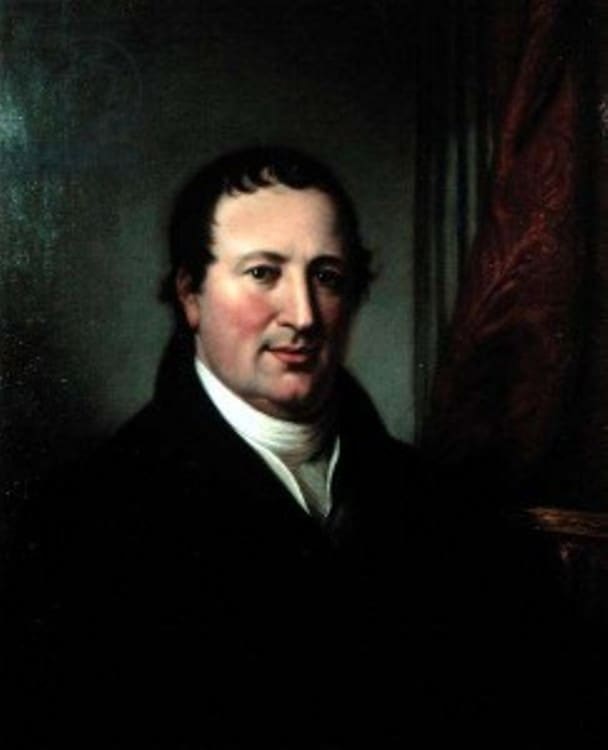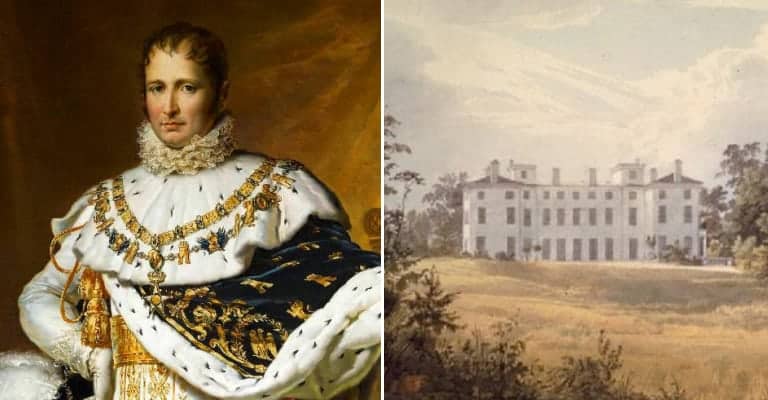Being an Average Joe (or Average Jane) and living in the shadow of a highly accomplished relative can be tough. Adding a layer of sibling rivalry when that highly accomplished is one’s kid brother makes it tougher yet. But what if that kid brother happens to be Napoleon Bonaparte? That would take things to levels of complexity and awkwardness that most of us never have to deal with. Joseph Bonaparte (1768-1844), Napoleon’s older brother, was not so lucky.
Willing or not – and he was mostly unwilling – Joseph’s life was swept up and carried off, like a leaf caught up in the tornado that was his younger brother’s career. A mild mannered, idealistic, and low key figure who just wanted to be a writer, he was first pressured by his father into becoming a lawyer, and then by Napoleon into becoming king of Naples, and then king of Spain. He turned out to be a good king in Naples, but a disastrous one in Spain. His royal career came to a pathetic end, and king Joseph went into exile, incongruously ending up in New Jersey, of all places.

Life As One of the ‘Other’ Bonapartes
He was born Giuseppe Bounaparte in 1768, later Gallicized into Joseph Bonaparte. Joseph’s father was a Corsican patriot who resisted the French invasion of Corsica in 1768 – 1769, but he eventually joined the winners and became a supporter of French rule. Joseph, the third of his parents’ children but the first to survive infancy, was raised in a middle class environment that allowed him to receive a formal education.
After France occupied Corsica, the Bonaparte family move to the French mainland, where Joseph continued his education. He was never particularly strong willed, and from early on, he was often dominated by his younger brother, Napoleon. A pattern was established in childhood, that would last into adulthood, in which Joseph looked up to and followed the lead of his kid brother, not the other way around. Joseph wanted to become a writer, but he gave in to his father’s demands that he pursue something less flighty as a career, so he studied law in Pisa, Italy. He then settled in Marseilles, where he met and married a rich merchant’s daughter.
Both Joseph and Napoleon Bonaparte supported the French Revolution, with Joseph serving the cause in the civilian government, and Napoleon in the military. While Joseph was attending law school and wooing his future wife, Napoleon began his meteoric rise, starting with his success in expelling British-backed Royalist rebels from Toulon in 1793. As Napoleon continued his rise, Joseph served the French Republic as a legislator in its lower house, the Council of Five Hundred, in the upper house, the Council of Ancients, and as diplomat. In the latter role, Joseph represented France as ambassador in Rome, and also as a Minister Plenipotentiary who negotiated a treaty of friendship and commerce with the United States.

When Napoleon overthrew the government, he was fortunate to have two brothers as prominent members of the French legislature. While older brother Joseph served in the Council of Ancients, younger brother Lucien served as President of the Council of Five Hundred – equivalent to US Speaker of the House. The Bonaparte brothers were thus well positioned to help Napoleon seize power on November 9th, 1799, otherwise known as the Coup of 18 Brumaire, after its date on the French Revolutionary Calendar.
Joseph continued to serve as a diplomat after Napoleon seized power, reorganized the government, and established himself as head of the French Consulate. Over the following years, Joseph helped negotiate the Treaty of Luneville with Austria in 1801, and the Treaty of Amiens with Britain in 1802. However, his efforts at forging an enduring peace with the British came to naught, when Napoleon’s military ambitions led to a severing of relations and a resumption of war with Britain in 1803.

